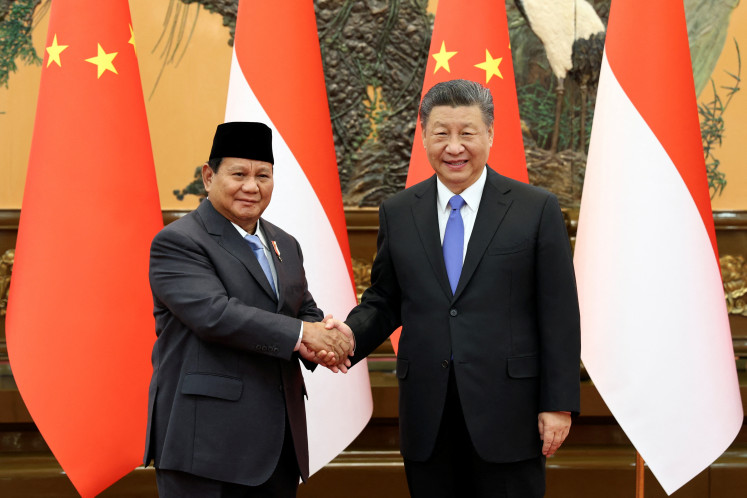Reflecting on the 40th anniversary of the constitution of the oceans
Some have argued that the convention gives too much power to coastal states and that it fails to adequately protect the rights of other nations with regard to the use of the oceans.
Change Size
 The Indonesian delegation to the United Nations Conference on the Law of the Sea, pose for a photo, in Geneva, 1958, with Ahmad Subardjo Djoyoadisuryo (third left) and Mochtar Kusumaatmadja (third right). (Indonesian Spectator, 1 April 1958/File)
The Indonesian delegation to the United Nations Conference on the Law of the Sea, pose for a photo, in Geneva, 1958, with Ahmad Subardjo Djoyoadisuryo (third left) and Mochtar Kusumaatmadja (third right). (Indonesian Spectator, 1 April 1958/File)
T
he Center for International Law of the National University of Singapore (CIL NUS), the Australian National Centre for Ocean Resources and Security (ANCORS) and the University of Wollongong, Australia, with great support from the United States Department of State, jointly organized a workshop on maritime boundary delimitation early this month.
Engaging discussions among participants and speakers made me reflect on the legal basis of maritime boundary issues: The United Nations Convention on the Law of the Sea (UNCLOS). Forty years ago, on Dec. 10, 1982, UNCLOS was adopted. This marked a significant milestone in the history of international law of the sea, as it codified the rights and responsibilities of nations with respect to their use of the world's oceans.
UNCLOS is a comprehensive set of rules governing the use of the world's oceans. It covers a wide range of issues, including the rights and duties of nations with regard to the use of the oceans for navigation, fishing, mining and the protection of the marine environment. For its comprehensiveness, Prof. Tommy Koh, president of the third UN Conference on the Law of the Sea that produced UNCLOS, referred to UNCLOS as the Constitution of the Oceans.
One of the key provisions of UNCLOS is the establishment of a legal framework for the delimitation of maritime boundaries between nations. This is important because it helps to avoid conflicts over the use of the oceans and provides a mechanism for resolving disputes peacefully.
UNCLOS basically governs countries’ entitlement over maritime areas, the breadth of which is measured from their baselines/coastlines. Pursuant to UNCLOS, a coastal state is entitled to 12 nautical miles of territorial sea, 24 nautical miles of contiguous zone, 200 nautical miles of exclusive economic zones and continental shelf that can go beyond 200 nautical miles.
Due to their geographical configuration, there is no way a country can have all maritime zones it is entitled to without having them overlap with those of others. Here is where maritime boundary delimitation is required and UNCLOS provides provisions on how such boundaries should be settled.
UNCLOS also provides the establishment of an international tribunal, known as the International Tribunal for the Law of the Sea (ITLOS), which has the authority to adjudicate disputes between nations regarding the interpretation and application of the treaty. This helps to ensure that UNCLOS is applied consistently and fairly and provides a means for resolving disputes in a peaceful and orderly manner. While ITLOS is specifically established based on UNCLOS, cases related to the law of the sea can also be brought to the International Court of Justice in the Netherlands.


















